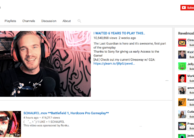The Ethical Dilemma of When to Publish News
By
2009, Vol. 1 No. 11 | pg. 1/1 The Society of Professional Journalists publishes a code of ethics for journalists; among the rules listed is the journalist’s responsibility to seek the truth and report it and his responsibility to minimize harm (www.spj.org). These two ethical standards frequently come into conflict. When covering a story that will negatively impact the public it is often important for a news organization to break the story as quickly as possible. But they are also responsible for verifying the accuracy of each story so as not to misinform the public. When a paper fails to strike the proper balance between these two goals, not only does its reputation suffer, but often the person or organization falsely reported about also suffer in the public eye. News organizations have to balance their responsibility to do no harm to these individuals or organizations with the public’s right to know. Earlier this month CNBC and Reuters reported that the US Chamber of Commerce had announced that it was throwing its support behind climate change legislation making its way through the US Senate. After denials were issued from the Chamber of Commerce both news organizations retracted the stories. According to Politico.com, “The Yes Men, a left-leaning activist group that often impersonates officials from organizations they oppose, took responsibility for the hoax.” The site also states that a Thomson Reuters spokesperson justified their failure to verify the story by saying, “Reuters has an obligation to its clients to publish news and information that could move financial markets, and this story had the potential to do that (Lerner and Calderone).” Reuters obviously felt its responsibility to report on an issue that had potential to move markets was more important in this case than its responsibility to verify the press release. In retrospect, this was clearly a mistake. Not only was the information not important enough to justify the lapse, but if the Chamber of Commerce hadn’t immediately denied the piece and demanded its retraction, the Chamber would have been misrepresented. Since the information was not vital – it didn’t warn readers of a potential risk to themselves or their families – Reuters and CNBC should have taken the time to verify the information or should have reported the information as being unverified. Fortunately, in this case the story was caught almost immediately and the repercussions were minimal.In other cases, failure to verify data can literally mean the difference between life and death. In May 2005 Newsweek Magazine published a story that claimed an American interrogator at Guantanamo Bay had flushed a copy of the Koran down a toilet. According to the Washington Post in a story published on May 17, 2005, “The May 1 item triggered violent protests [last week] in Afghanistan, Pakistan, Indonesia and other countries, in which at least 16 people were killed.” According to the Post story, Newsweek ran the information after obtaining it from an anonymous source without further verification. While it’s possible the riots would have happened even without this one tidbit the sacrilegious implications of flushing a Koran down the toilet likely served as a tipping point launching the violent protests. While Newsweek later retracted the charge, the story had already had a deadly impact. According to the Post, Bob Zelnick, a former ABC News correspondent who covered the Pentagon and now chairs Boston University's journalism department, argued that the paper’s error was not in using an anonymous source, or even just in failing to verify the information – “Zelnick said that even if the Koran incident was true, he would have had ‘reservations’ about running it because ‘the potential to inflame is greater than the value of the piece itself (Kurtz).’" It seems clear that Newsweek published the piece because it felt it had a responsibility to its readers to inform them of what was occurring at Guantanamo and it possibly even felt a responsibility to detainees to expose how they were being treated. However, it should have recognized the importance of reporting the story accurately – perhaps more so even than with other stories it publishes, since the potential ramifications of the piece should have been clear. Newsweek should have weighed the public’s need to know against its responsibility to report a well-proven and completely accurate piece. The potential repercussions for reporting inaccurate information should have clearly out-weighed the public’s need to know. If Newsweek felt a responsibility to detainees to report the information as soon as possible it should have only reported information that was completely verified and then done a more in-depth piece later once they were able to verify addition details. In these two instances news organizations failed to verify information and it resulted in inaccurate reporting. However, there are times when the public’s need to know becomes more important than holding a story until it can be completely verified. In these cases the news organization should carefully consider how they include the information. On October 22, 2009 The New York Times posted a story on a local medical center, Carle Foundation Hospital, under investigation by the federal Office for Human Research Protections (OHRP), an arm of the Department of Health and Human Services, for endangering patients during cancer studies it was conducting. While OHRP has already issued Carle two letters of criticism and the National Cancer Institute has shut down new patient enrollment in the studies at Carle, the Times article goes beyond reporting the events at Carle. It warns readers that Carle may be a symptom of a greater problem. The Times piece says, "…some experts in community medicine say that many of the local programs simply fly under the federal government’s radar. And they contend that some of those clinics lack the support staff, record-keeping systems and institutional oversight of larger centers to assure proper ethics and patient safety in experimental medicine" (Wilson). Should this prove to be the case, the Times will have warned readers about a potential threat to their health. If this hospital proves to be the exception rather than the rule, the Times will instead have damaged the reputation of community hospitals without justification. In this case the paper should have weighed its responsibility to readers against its responsibility to an organization; failure to inform readers could have a detrimental effect on their health. The Times’ responsibility to readers out-weighs its responsibility to community hospitals. News organizations have to balance their responsibility to seek out and report the truth with their obligation to do minimal harm. Often, this means considering the potential repercussions of any unverified facts or, as in the Times piece, the potential repercussions of reporting before a federal investigation into the larger issue is completed. The determining factor should be how important the story will be to readers. If the story warns readers of something potentially harmful to their health or that affects their rights or lives in a major way, then the story should be published. If possible the news organization should restrict the story to verifiable information; if this isn’t possible, it should note within the story which facts are unverified. Every possible effort should be made to ensure the story’s accuracy – if accuracy cannot be ascertained then the story should be held. It is only in the case of news that could potentially have a detrimental effect on readers’ lives that the public’s right to know becomes more important than reporting the complete story with complete accuracy. Kurtz, Howard. “Newsweek Retracts Guantanamo Story.” www.washingtonpost.com, May 17, 2005. Lerner, Lisa and Michael Calderone. “CNBC, Reuters fall for climate hoax.” www.politico.com, October 19, 2009. The Society of Professional Journalists, Code of Ethics. www.spj.org. Wilson, Duff. “Research Uproar at a Cancer Clinic.” www.nytimes.com, October 22, 2009. Suggested Reading from Inquiries Journal
Inquiries Journal provides undergraduate and graduate students around the world a platform for the wide dissemination of academic work over a range of core disciplines. Representing the work of students from hundreds of institutions around the globe, Inquiries Journal's large database of academic articles is completely free. Learn more | Blog | Submit Latest in Business & Communications |


















